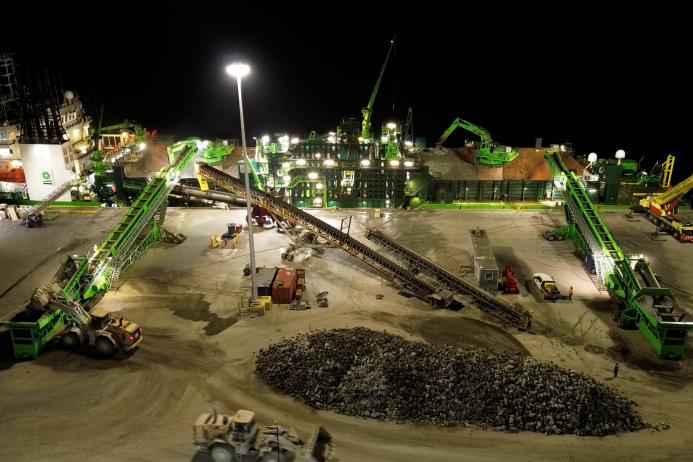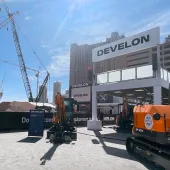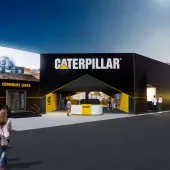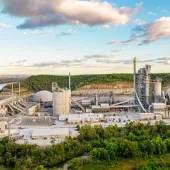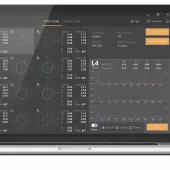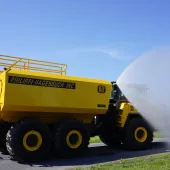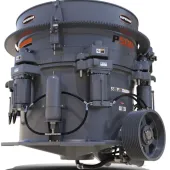Mobile shiploading success for Telestack
New materials-handling system for DEME instrumental in ground-breaking Coastal Virginia Offshore Wind project
TELESTACK have played an instrumental role in the supply of two mobile shiploading systems to DEME, one of the world’s leading marine engineering and offshore energy companies, as part of the Coastal Virginia Offshore Wind (CVOW) project, a landmark initiative in the US renewable energy sector.
As the largest offshore wind project in the US, CVOW represents a pivotal step toward clean energy and reducing carbon emissions, with Telestack’s innovative shiploading equipment playing a vital part in its success. CVOW, developed by Dominion Energy, is designed to deliver 2.6GW of renewable energy – enough to power 660,000 homes at peak output. The project involves the construction of 176 wind turbines, three offshore substations, and undersea cables, together with onshore infrastructure to channel renewable energy to the grid.
Telestack’s two mobile shiploading systems have seamlessly integrated into the material-handling element of the project, ensuring the efficient loading of large-grade rock armour to flexible fallpipe vessels (FFPVs). The innovative equipment is operating in Bayside, Canada, where Telestack have supplied two AP 1500 D3 wheel-mounted apron feeders and two TB 52 (170ft) radial telescopic shiploaders for high-rate loading of rock material to DEME’s specialized rock-installation vessels.
The Telestack system includes a range of technical features and benefits which are vitally important for the long-term handling of rocks of this grade. The AP 1500 feeders include a heavy-duty steel apron chain complete with high-grade cast steel flights and bearings. The feeders can be fed by wheel loader from three sides for the ultimate flexibility and increased tonnages. Also, the integrated variable-speed drive on the feeders ensures a ‘controlled’ flow of material to the TB 52 shiploaders. The feeders are a wheel-mounted design that allows the units to be moved, by means of a tow hitch, around the quayside as required.
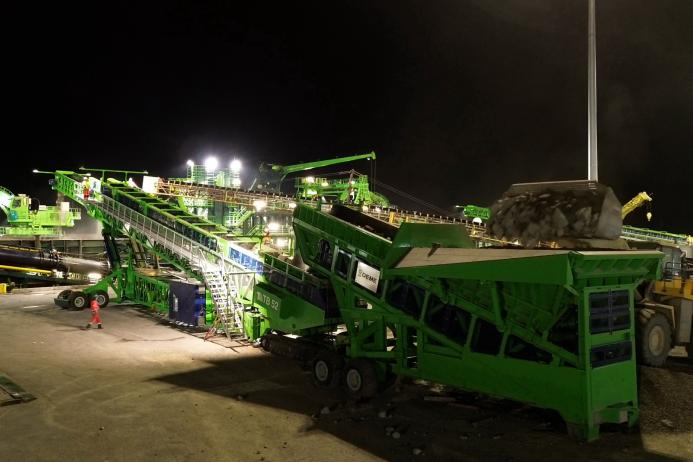
The feeders discharge to the TB 52 radial telescopic boom conveyors, which can load the largest flexible fallpipe vessels, including DEME’s Yellowstone, currently the world’s largest FFPV with a 37,000-tonne capacity and more than 14m freeboard/draft height. The design of the conveyors’ radial and telescopic features allows the operator to place the material easily within the rock hold, minimizing the work of the vessel’s excavator within the hold and ultimately increasing the tonnage rate of the entire operation.
Both TB 52 shiploaders are track-mounted units, which allows them to easily move off site when not required. They include heavy-duty rollers, belting, and skirting, complete with anti-roll-back to handle the large rock, whilst the 600mm spacing of the rollers minimizes material ‘bounce’ when the units stop. Material handling is further controlled by the variable-speed drives on the shiploaders, which work along with the feeder to ensure full operational control in all scenarios.
Telestack say this contract has once again demonstrated their status as a leader in mobile bulk material handling, largely due to their experience and ability to design and manufacture innovative products that meet the high specific demands of the project.
Telestack’s shiploading solutions are engineered for high throughput and operational efficiency and flexibility, achieved through mobility. Carl Donnelly, Telestack’s international sales manager, explained: ‘We have a huge portfolio of international projects that demonstrate our expertise. Our team is experienced in high-profile projects and value the pre-engineering stage that allows the solution to develop as a result of true collaboration, listening to the needs of the operation and using decades of experience. This process isn’t just one meeting – it takes time, patience, and partnership, which we pride ourselves on.’
Designed for the toughest applications, Telestack’s heavy-duty equipment is engineered to handle the most demanding materials with efficiency and durability. Built with reinforced structures and mine-spec componentry, the high-capacity loading ability of Telestack solutions allows the rapid transfer of rock materials, minimizing turnaround times for the FFPV. In addition, they ensure material is delivered to vessels accurately and in compliance with environmental regulations.
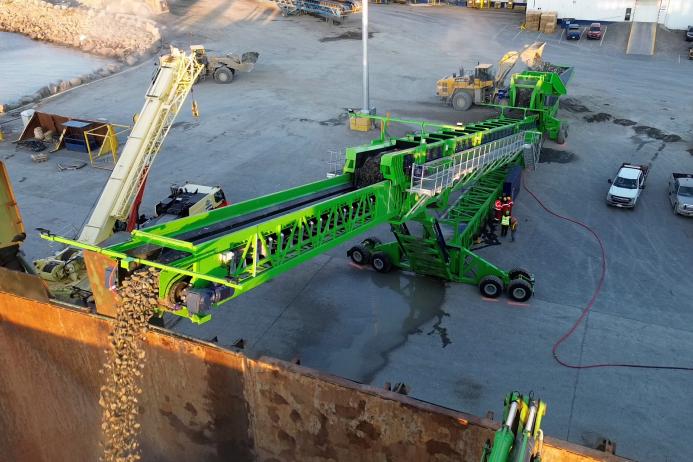
Mobile shiploading can significantly enhance the operational performance and productivity of a port by offering greater flexibility, efficiency, and cost savings compared with fixed loading systems. Mobile units allow ports to quickly adapt to different vessel sizes and cargo types, reducing vessel turnaround times and increasing throughput. By eliminating the need for extensive infrastructure modifications, mobile shiploaders minimize capital expenditures while still providing high-capacity loading rates.
Moreover, rapid deployment ensures that revenue streams start flowing almost immediately. Unlike traditional systems that experience downtime due to empty return cycles, mobile solutions enable continuous loading, maximizing throughput while reducing operating costs. Designed for simplicity, these machines require minimal training, are easy to maintain, and eliminate complex electrical systems, ensuring smooth, uninterrupted operations.
By embracing mobile solutions, Telestack say companies such as DEME and others within the offshore industry can unlock unprecedented efficiency, safety, and environmental benefits in handling their offshore rock.
According to Telestack, the CVOW project underscores the critical importance of partnerships and innovative solutions in advancing renewable energy, and the company says it is delighted to have collaborated and worked closely with DEME to devise the shiploading system for this ground-breaking endeavour, which will not only bolster the nation’s renewable energy capacity, but also inspire confidence in offshore wind as a reliable, sustainable energy source.

